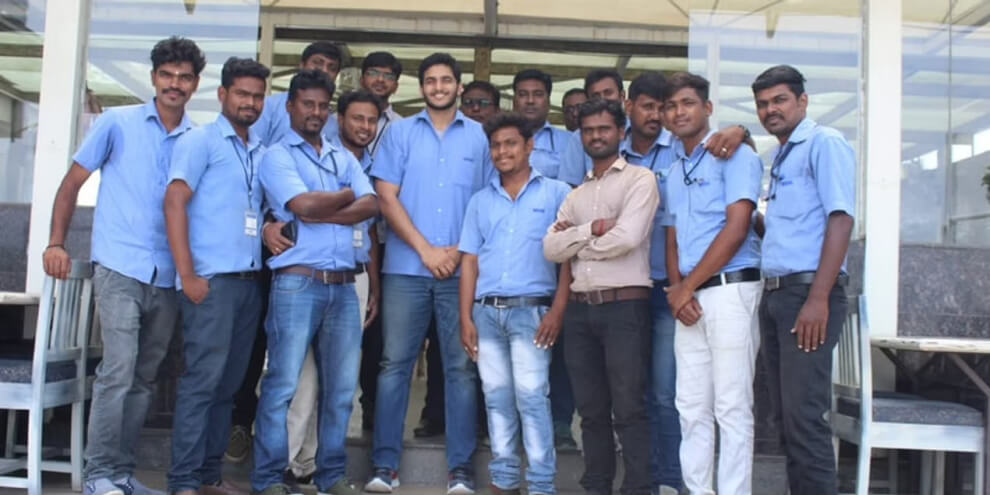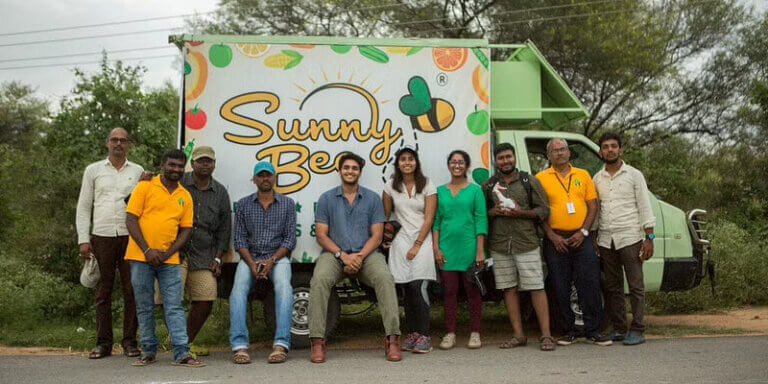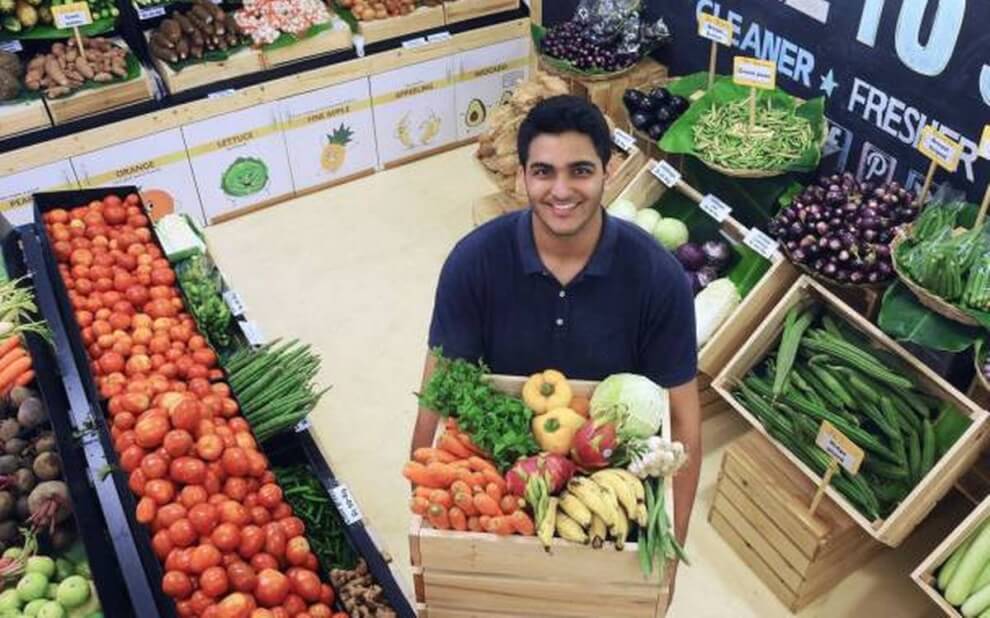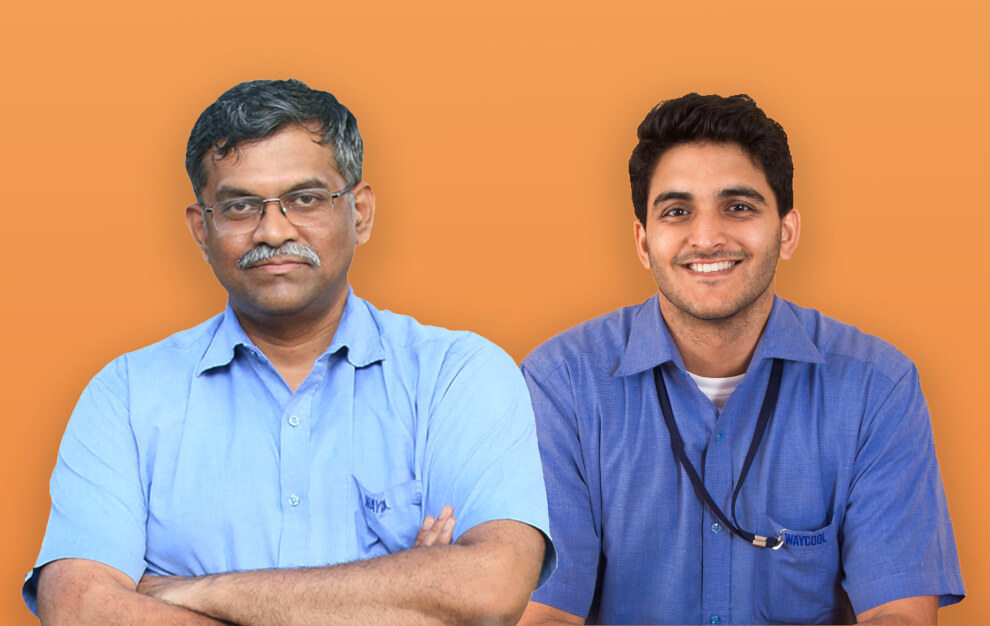WayCool Foods’ Journey from SunnyBee to the B2B Segment
It all began with long weekend drives, where Karthik Jayaraman, Sanjay Dasari, and a couple of Karthik’s co-workers from the automobile company would pick a spot like the Koyambedu market or the Parry’s Corner grain market and slowly retrace the supply chain over the months. You may be wondering why a group of professionals from the automotive design and manufacturing sector were interested in the origins of food.
“The automotive industry has a tendency to go into recession every five years before it crawls its way out once again,” reveals Karthik. The cut-throat competition within the industry meant that most of the focus was on the supply chain. A seasoned professional who was exhausted by the cyclic fate of the industry, Karthik believed that the talent available within his network would give him the scope to gather a team to create a bigger impact on a larger population.
Meanwhile, Karthik’s colleague-turned-family friend’s son, Sanjay, had just returned from the US after finishing business school. This wasn’t the first time they pursued a potential start-up idea together. “There was a time we were bouncing off ideas about a potential venture in healthcare,” narrates the co-founder with a sense of nostalgia. It was during one of these ideation sessions that Sanjay brought up a potential gap in the food sector—a sector where everybody was a consumer and nearly half the population of India was either directly or indirectly associated with its production.
As the duo dove deeper into the issue, they realised that the amount of food waste generated in India could feed the entire population of Brazil. The root source of the problem was the inefficiencies in the supply chain. “Back then, issues in food production and food security were discussed very often,” he explains, “It’s only very recently that these discussions have started showing the semblance of a gap in the supply chain.”
On the weekend drives, the group of automobile professionals realised two things. Tamil Nadu’s farmlands were small and required an aggregator to collect supply from several farms to generate a quantifiable amount of produce for distribution. Secondly, the inefficiencies in transport, processing, packaging in bulk, and repackaging into smaller quantities led to an overall reduction in the quantity of produce. “There is a loss in water during transport and after all, fruits and vegetables are perishable,” he reveals, “The produce was being passed on from one hand to another and it was not like any of the stakeholders were making a significant margin out of it either—leading to significant wastage.”
In 2015, the duo invested their own money, built a team with one salesperson and a truck driver, and rented a small house in Porur from a friend. That was WayCool’s first warehouse setup from where they reimagined the farm-to-fork supply chain.

Tamil Nadu was the ideal place to start WayCool Foods. “The roadways were predictable. We were able to gauge transport time to the farm gates and haven’t been off by more than fifteen minutes,” he says with a hint of amusement, noting that Tamil Nadu’s efficient infrastructure was the backbone to the growth of the start-up, “That was what gave us the confidence to build our own direct supply chain,” he shrugs.
Additionally, the penetration of the smartphone into the farming community of Tamil Nadu meant that the start-up could use smartphones to inform farmers on the actual supply and demand. This would help farmers make more intelligent decisions about what crops to plant. “There was a point of time when the headlines would say that the tomato prices shot up to Rs. 70 per kilogram,” he recalls, “These headlines were wrongly interpreted as an increased consumption of tomatoes when in reality the price surge was because of seasonal diseases affecting the crops.” Most of the farming and retail population across South India were also acclimatised to digital currency, enabling quick and seamless transactions across the supply chain.
The time was right and theoretically, the duo had it all figured. However, the execution was a classic chicken-or-egg situation. Grocery stores, while piqued, were reluctant to commit to any transactions till they saw the new system materialise. As a consequence, WayCool decided they would start their own chain of stores. However, no one from the team had a background in retail before. The question arose—how do we pick locations for our stores?
The team was quick to think on their feet. They gathered their resources and loaded trucks with fifty varieties of fruits and vegetables. These trucks were parked near IT parks and large apartment complexes in different localities. “The exercise showed us that Chennai’s customer base was sophisticated. They not only cared about the price of vegetables but also understood quality,” adds the entrepreneur. They were dealing with a high involvement purchase where consumers were willing to pay a fair price for good quality. The ground study helped them set up SunnyBee—now a popular chain of retail outlets with produce straight from the farm.

The next challenge on hand was to connect with farmers to build trust—a challenge that involved both culture and logistics. The National Agro Foundation in Tharamani and the CSR wing of TCS that was working with farmers around Tindivanam helped WayCool connect with farmer cooperatives consisting of a group of fifty or more farmers (which is then registered as a farmer producer company once it reaches a thousand farmers).
Growth was steady with the support of friends, family and six angel investors until 2017 when the company received institutional funding of $2.7 million from impact investment group Aspada Investment Company.
From SunnyBee, WayCool pivoted to the B2B sector, which not only presented better opportunities to scale but also solved the problem of managing the quality of the produce. “The farmers would allow bottle gourds to grow up to two feet long,” Karthik elaborates an instance, “In a normal household that would be considered too big, and hence the smaller bottle gourds would be sold at a higher price as they are considered better quality in a supermarket, but, mass food producers and manufacturers would consider the larger produce more beneficial.”

WayCool, since then, has gone through four rounds of institutional funding with the most recent being about $117 million last December. Along the way the start-up once again pivoted by adopting an asset-light model, partnering with warehouses and logistics companies on a contract basis. More recently, the founders have also been acquiring agri-tech companies with use cases such as a portable weather station and IoT-enabled supply chain automation that further make the process of bringing produce from the farm to the table more efficient with lesser losses along the way.
WayCool Foods has predominantly anchored its operations in the southern states of India with a scattered presence in Maharashtra and fifty percent of sales concentrated in Tamil Nadu. “The aim is to expand throughout South and West India and eventually cater to the South Indian diaspora outside India,” says the co-founder. Meanwhile, the technology backing the distribution and farming at WayCool Foods has caught the eye of international parties from the UAE and Africa. “We are also looking at unbundling our technology stack and creating a SaaS model in the near future,” he adds.
As the interview nears conclusion, Karthik throws light on the need for businesses to focus on sustainability and profitability at par. Most of WayCool’s warehouses produce zero waste, are water neutral, and run on solar power while a majority of the fleet consists of electric vehicles. After all, the start-up is heavily involved in agriculture and headquartered in a city that is very easily affected by climate change. As an additional effort, the company employs its full-stack agri-tech resources in initiatives that neutralise its carbon footprint like planting forests, transplanting mangroves and restoring soil health along with government institutions. “There are valuable assets around us that we don’t notice and are depleting fast. We need to do our part to rebuild them,” he concludes.







